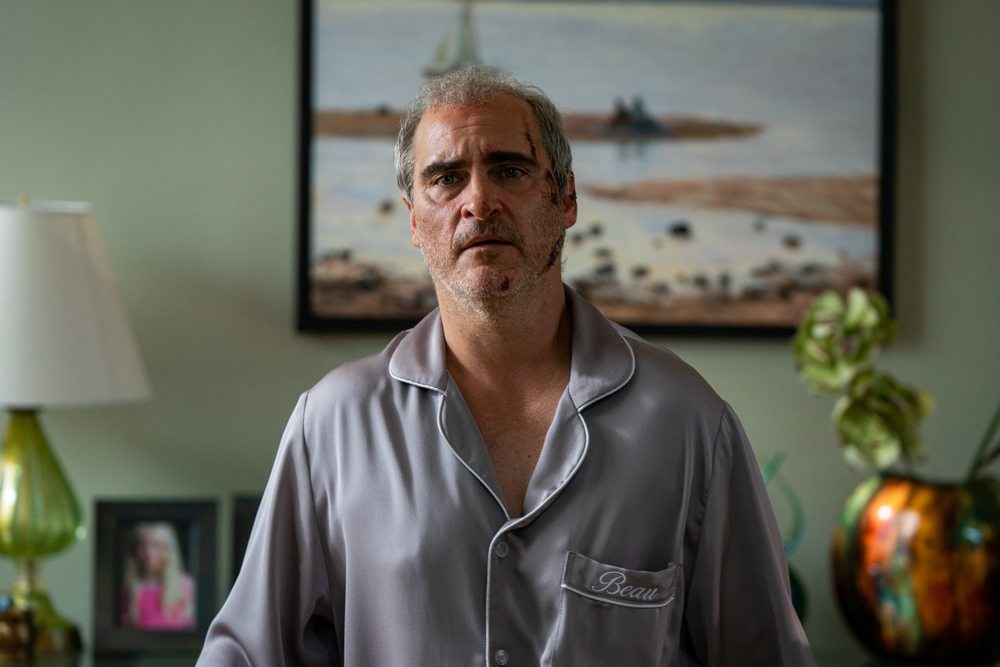Beau Is Afraid

Joaquin Phoenix stars in BEAU IS AFRAID. (Photo: A24)
The title character spends much of Beau Is Afraid running, whether naked through a city street, through the woods in a paint-splattered nightgown, or away from gun-wielding assassins.
More than anything, of course, he’s running from his past — or perhaps the past of director Ari Aster (Midsommar), whose latest twisty mind-bender is a beguiling if self-indulgent exploration of a middle-aged loner’s serious mommy issues.
More pretentious than provocative, this ambitious and deeply introspective psychodrama about guilt, grief, and closure is unsettling, perplexing, and even disgusting. But its unique vision also is exhilarating, bolstered by an audacious portrayal from Joaquin Phoenix that embraces the film’s eccentricities.
It starts with a question to Beau from his therapist (Stephen McKinley Henderson): “Do you ever wish that she was dead?” In addition to being afraid, Beau is also neurotic, anxious, and cynical. He’s the product of some seriously dysfunctional family dynamics. Yet compared to the creeps and weirdos that populate his world, he’s relatively normal.
Cash-strapped and living in a dilapidated apartment building in what amounts to a dystopian urban wasteland, he misses a flight to see his mother (Patti LuPone), whose calm reassurance later proves deceptive.
Tragedy triggers a nightmarish surreal odyssey filled with oddball encounters, as Beau eventually winds up at the suburban home of a doctor (Nathan Lane), his overly accommodating wife (Amy Ryan), and their pill-popping teenage daughter (Kylie Rogers).
Later, he becomes embedded with an off-the-grid theater troupe and experiences a chance encounter with an enigmatic woman (Parker Posey) from his past.
As it flashes forward and backward, Aster’s multilayered screenplay gradually reveals clues while blurring reality and fantasy to the extent we’re not sure which is which. Is Beau the victim of trauma-induced mental illness or haunted by something more sinister?
Laced with dark humor throughout, the film remains intriguing despite its oppressive length and episodic structure. Tension simmers beneath the array of surface quirks and sensory gimmicks intended to maximize the discomfort, both for Beau and for moviegoers.
Phoenix’s fully committed performance requires him to essentially play multiple versions of the same character, generating hard-earned sympathy for a paranoid, mumbling man-child that seems to fit the actor’s offbeat wheelhouse.
As Beau Is Afraid unpacks its baggage, any broader social commentary feels muddled. However, the deliberately paced film rewards the patience of those willing to withstand the misdirection and piece together its puzzle.
Rated R, 179 minutes.